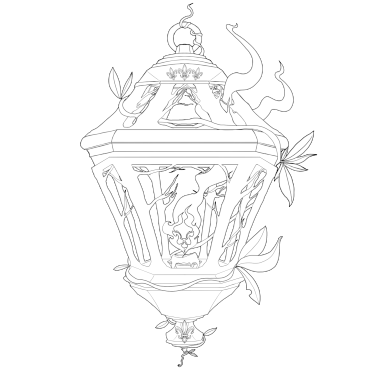Introduction for Veteran Gothic Players
This page is intended for those who have already played in Gothic: the Lion Age, as a quick guide on what differences to expect in Luisant. This includes both changes that are general Gothic rules changes and information specific to the Luisant chapter.
This is a general outline, not an exhaustive list. The major elements are expected to remain constant, but some details may change as we get closer to the start of play.
Tier One Game – Local Systems
Luisant is a “tier one” game, meaning that the larger-scale systems are not in play. These systems are not being used:
- Warfare
- Rulership
- Organizations & Agents
- Travel
Downtimes are not used. Some downtime actions, like Waging War, have been removed; others, like Gathering, have been rewritten to happen in game space.
Personal Plot Arcs
Luisant continues to emphasize the personal development of characters, but does so somewhat differently – using the concept of a personal plot arc which is designed at character creation, rather than ongoing individual personal plots per game. PERSONAL PLOT ARCS
Intertwined Characters
Players are heavily encouraged to create interconnected stories that create a sense of community, with all the cooperation and conflicts that entails. Perks and flaws like Enemy will be replaced with equivalent effects that refer to a specific set of NPCs in the town. PROMINENT FIGURES Staff will create communication channels and groups for town subgroups such as the different Lineages, to help players coordinate their backstories and work together on the overlaps.
Character Restrictions
These restrictions are designed to support the theme of a small town, distant from the main areas of civilization.
In-game events may create new contact points and opportunities for outsiders to come to Luisant. Additional cultures and backgrounds will be available for characters created after such events.
There may be some exceptions to these restrictions in limited quantity, not purchasable via Glory but available through other methods – e.g. from a raffle during the “beta” mini-events.
Organizational Membership
Characters may not start play with any Organizational perks – that is, they may not begin play as a Knight, Priest or Mage. Membership in these groups can be earned during play.
Culture
All characters must be Capacionne.
Characters may purchase perks and flaws from other cultures using Glory, subject to approval. Some specific Perks and Flaws, such as Caravanserai, will be unavailable.
Lineage
Lineages are a new concept in Luisant, which partially fills the former role of Cultures. Cultural starting skills are replaced with Lineage starting skills. Each Lineage is a group of people mostly (but not entirely) connected by blood; an extended family or clan. “Outcast” is a category for all those who do not fit into a lineage, with its own set of starting skills. LINEAGES
Social status
Characters may be of any social status. Additional guidance on what each class means in Luisant:
- Scum are those who chose not to contribute to village society. Whether the character feels justified in this is up to you – but they are widely considered leeches and troublemakers by common folk. When considering a scum character, note that there is no organized crime and little opportunity for it within Luisant.
- Example concepts: Town drunk. Would-be adventurer tired of village chores. Habitual vandal.
- Peasants make up the majority of the village. They work the land, carry out daily tasks, and spend their leisure time in community traditions and various personal pursuits. The woods are too thick to support farmland; there are no Farmers here.
- Merchants are usually those who focus on a craft skill – blacksmiths, tailors and such. When considering a merchant character, note that coin is rarely used and barter or gifting are more common, and that trade with the outside world is rare. ECONOMY
- The Connections perk is unavailable.
- Gentry are servants and retainers of the Noble house, aides to the Knight that serves that house, or acolytes of the Church.
- The Highborn perk is unavailable.
